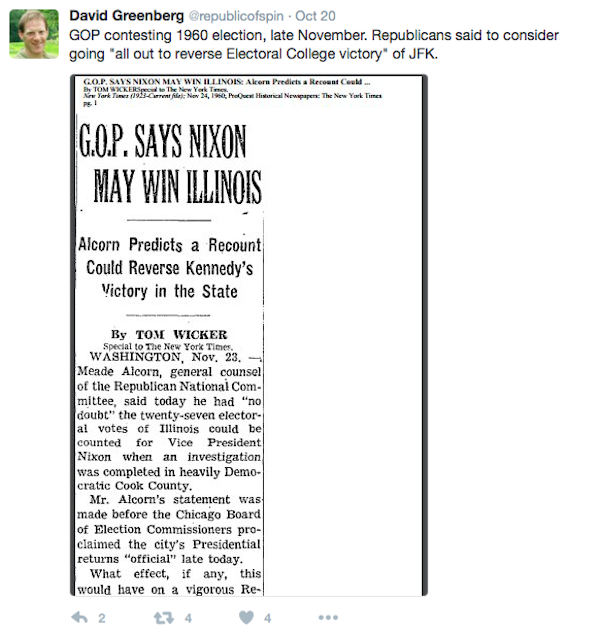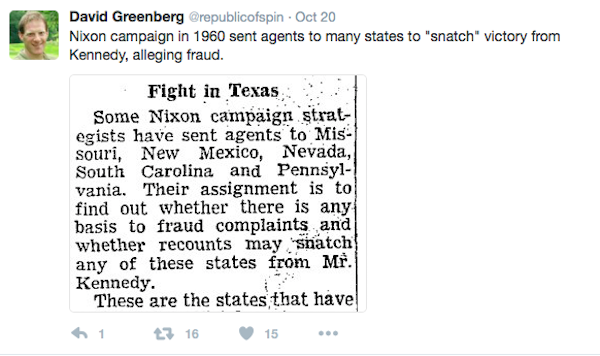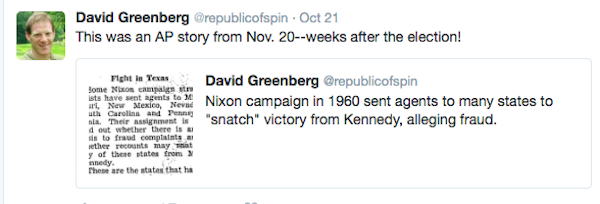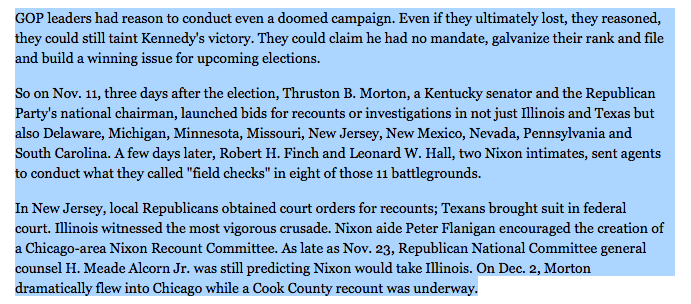Historian: Nixon DID contest the 1960 election
Related Link Trump’s attitude is not ‘unprecedented.’ Nixon was a sore loser, too. By David Greenberg
Since Donald Trump began saying that the election is rigged and that he might contest the outcome -- if he loses -- critics have been suggesting he could learn a thing or two from Richard Nixon. Nixon, they argue, lost the election of 1960 but didn't challenge the results. Among those making this argument is Mark K. Updegrove, the director of the Lyndon Baines Johnson presidential library. In an op ed in the New York Times Updegrove wrote this week that "At least publicly, [Nixon] played the statesman; he subordinated his own ambitions for the sake of governmental continuity, ensuring that the country was not thrown off balance at a time when the United States was enmeshed in a Cold War with the Soviet Union. 'I could think of no worse example for nations abroad,' he said, 'than that of the United States wrangling over the results of our presidential elections, and even suggesting that the presidency itself could be stolen by thievery at the ballot box.' (And, of course, he hoped to have a long political career ahead of him; being seen as a sore loser wouldn’t further it.)"
But is it true that Nixon didn't contest the outcome of the election in 1960? It isn't, says David Greenberg, a professor of history at Rutgers. In a series of tweets that have made their way around the Twittersphere Greenberg has been citing evidence that GOP officials actively challenged the results of the election in several states, with Nixon's obvious acquiescence and probably at his direction. Pundits on news opinion websites have been sharing Greenberg's research.
This is the second time Greenberg first made the case against Nixon. The first time was in 2000 when Republicans disparaged Al Gore for challenging the Florida vote. As Greenberg pointed out, the GOP in 1960 dispatched officials to 11 states to launch recounts or investigations:
<
>



